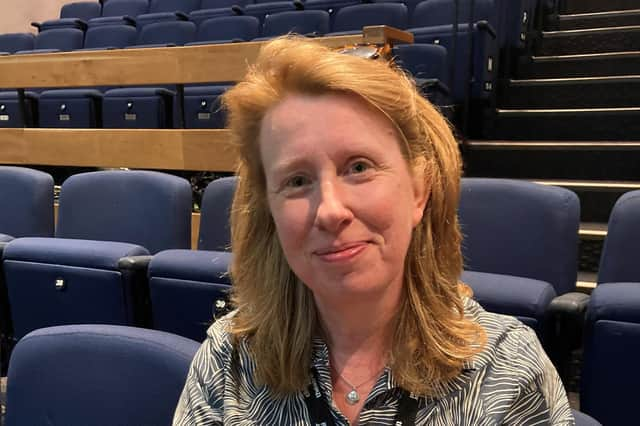How a play comes together at Chichester Festival Theatre


But vital her role certainly is. As senior producer at the CFT, where she’s worked for 11 years and before that too, she works closely with the artistic and executive directors as the lynch pin to make each show actually happen.
Her role is negotiating all the licence agreements and contracts for the writers, creative teams, actors and musicians; keeping shows on budget; and overseeing the stage management teams. Amelia is also the chief contact between all the freelance artists and the CFT, supporting everyone to make sure they have what they need to create the show. A further strand of her work is supporting the development of new and future productions.
Advertisement
Hide AdAdvertisement
Hide Ad“I am in one of those positions that link a lot of the departments together. We are the connection from the artistic director and the exec director through to the creative teams. It's difficult to describe but we are in the middle of the web that makes the productions happen. We talk to Justin and Kathy (Justin Audibert, artistic director and Kathy Bourne, executive director). The idea will come from Justin whether it is a play that he has chosen or a director to do something or a leading actor that has come up with a suggestion. The decision is made to choose the play or musical and then the producers get involved. There are two producers in Chichester and we share the season between us.
“We read the play for the cast size and for any unusual things that might be required that might have budgetary implications because of multiple scenes or particular needs, and we flag up those things. Obviously you have standard benchmarks but every show has its own individuality. We are looking at what is feasible. The director is brought on board and we then pull together the creative team. We negotiate their fees and we contract them and you have a casting director and it's the same with the actors. The producers have a hand in every bit of the production to bring it together so that they can all get together in the room on day one of rehearsals.
“And that’s the joy of the job. It's a real privilege to have these conversations from the very beginning. It gives you job satisfaction. They say that job satisfaction is when you see something through right from the very beginning to the very end. I never wanted to be on stage. That would put the fear of God in me. Right from being a child I never wanted to be out front but I did want to watch the actors. I've never been a limelight person. That just doesn't bother me but I'm really happy to be a cog in the wheel and that's the fascinating thing to see the whole process right the way through.
“I come from a stage management background and you find that a lot of people that do what I do have come up through that route. It's a similar link. You are behind the scenes keeping everything afloat. You know how much the legs are paddling but you are trying to make sure that it is all looking as smooth as possible!”
Advertisement
Hide AdAdvertisement
Hide AdPart of the challenge is to allow creativity without busting the budget: “You absolutely don't want to scupper creative vision but you've got to keep it on budget and deliver everything that people want. You expect the creative team to push as much as they can but you learn about the job with experience, and you learn what might come up though there will always be something that will come up from a completely different angle.
“One of the joys about Chichester is that we know we punch above our weight artistically. People come here because they know that we make good work and they know that they will have a lovely time. And the great thing is that everybody is working together towards making the show. Everyone pulls together in the same direction and that's not always the case in this industry. But in Chichester it is and that's why every time I've left I've come back again!”